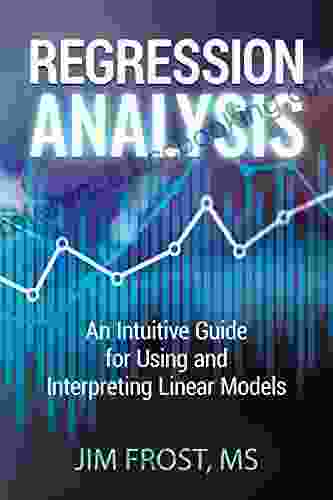Unveiling the Enigma of Frontotemporal Degeneration: A Comprehensive Guide to Understanding the Journey

In the realm of neurological complexities, Frontotemporal Degeneration (FTD) stands as a formidable enigma, challenging our understanding and captivating the hearts of those affected by its enigmatic presence. As we embark on this profound exploration, let us illuminate the intricate nature of FTD, unraveling its secrets and shedding light on the multifaceted challenges it presents.
4.6 out of 5
| Language | : | English |
| File size | : | 5709 KB |
| Text-to-Speech | : | Enabled |
| Screen Reader | : | Supported |
| Enhanced typesetting | : | Enabled |
| Word Wise | : | Enabled |
| Print length | : | 184 pages |
Unveiling the Symptoms: A Spectrum of Manifestations
FTD, an insidious neurological disFree Download, primarily affects the frontal and temporal lobes of the brain, regions responsible for our personality, behavior, language, and decision-making. Its insidious onset and diverse symptoms can often lead to misdiagnosis, prolonging the path to proper treatment and support.
The kaleidoscope of symptoms associated with FTD can manifest in various forms, including:
- Behavioral Changes: A marked shift in behavior, often characterized by disinhibition, impulsivity, apathy, and impaired social judgment.
- Language Difficulties: Progressive decline in language abilities, affecting speech production, comprehension, writing, and reading.
- Cognitive Impairment: Gradual decline in cognitive functions, including memory, attention, executive functioning, and problem-solving abilities.
- Motor Disturbances: Difficulty with coordination, balance, and fine motor skills, leading to tremors, muscle weakness, and gait disturbances.
- Emotional Changes: Alterations in emotional regulation, including emotional outbursts, apathy, and difficulty in expressing or interpreting emotions.
Unraveling the Causes: A Complex Interplay of Genetics and Environment
The precise etiology of FTD remains elusive, with a complex interplay of genetic and environmental factors believed to play a role in its pathogenesis. Genetic research has identified several gene mutations linked to FTD, including mutations in the MAPT, GRN, and C9ORF72 genes.
Environmental factors, such as head trauma, exposure to toxins, and certain infections, have also been implicated in the development of FTD. However, the exact mechanisms by which these factors contribute to the disease process are still being actively explored.
Illuminating the Diagnosis: A Path to Understanding and Intervention
Diagnosing FTD can be a challenging endeavor, often requiring a multidisciplinary approach involving neurologists, psychologists, and speech-language pathologists. A comprehensive evaluation typically includes a detailed neurological examination, neuropsychological testing, and brain imaging techniques, such as MRI and PET scans.
Early and accurate diagnosis is crucial for timely intervention and appropriate management of FTD. Once a diagnosis is established, a personalized treatment plan can be tailored to address the specific symptoms and needs of each individual.
Empowering the Journey: Navigating Treatment and Support
While there is currently no cure for FTD, a range of treatment options is available to alleviate symptoms and improve the quality of life for patients and their families. These include:
- Medications: Antipsychotics, antidepressants, and cholinesterase inhibitors may be prescribed to manage behavioral symptoms, mood disturbances, and cognitive decline.
- Speech and Language Therapy: Tailored interventions to address language difficulties, improve communication skills, and enhance swallowing function.
- Occupational Therapy: Practical strategies to enhance daily living skills, promote safety, and maximize independence in everyday activities.
- Physical Therapy: Exercises and interventions aimed at improving mobility, balance, and fine motor coordination.
In addition to medical interventions, a strong support system is essential for individuals with FTD and their loved ones. Support groups, online forums, and counseling services provide invaluable emotional support, practical guidance, and a sense of community.
Inspiring Hope: Research and Advancements on the Horizon
Despite the challenges posed by FTD, the research community remains steadfast in its pursuit of understanding, developing new therapies, and ultimately finding a cure for this enigmatic disFree Download. Promising research avenues include:
- Genetic Research: Ongoing studies aim to further elucidate the genetic basis of FTD, pave the way for personalized treatments, and identify potential targets for gene therapy.
- Drug Development: Scientists are actively investigating novel drug therapies that target specific disease mechanisms, such as tau aggregation and neuroinflammation.
- Stem Cell Research: The potential of stem cells to repair damaged brain tissue and restore lost function is being explored through cutting-edge research initiatives.
Igniting Resilience: Empowering the FTD Community
Living with FTD can be a formidable challenge, but it is not an insurmountable one. By embracing resilience, seeking support, and staying informed about the latest advancements, individuals with FTD and their families can navigate this journey with strength, dignity, and hope.
Numerous organizations and resources are dedicated to supporting the FTD community, including:
- The Association for Frontotemporal Degeneration (AFTD): A leading non-profit organization providing information, support, and advocacy for individuals with FTD and their families.
- The Alzheimer's Association: Offering comprehensive support, resources, and research initiatives for individuals with dementia, including FTD.
- Clinical Trials: Participating in clinical trials can contribute to advancing research and potentially gaining access to experimental therapies.
By uniting as a community, sharing our experiences, and advocating for increased awareness and research, we can illuminate the path forward for those affected by FTD. Together, we can empower resilience, inspire hope, and ultimately triumph over this enigmatic disFree Download.
4.6 out of 5
| Language | : | English |
| File size | : | 5709 KB |
| Text-to-Speech | : | Enabled |
| Screen Reader | : | Supported |
| Enhanced typesetting | : | Enabled |
| Word Wise | : | Enabled |
| Print length | : | 184 pages |
Do you want to contribute by writing guest posts on this blog?
Please contact us and send us a resume of previous articles that you have written.
 Book
Book Novel
Novel Page
Page Chapter
Chapter Text
Text Story
Story Genre
Genre Reader
Reader Library
Library Paperback
Paperback E-book
E-book Magazine
Magazine Newspaper
Newspaper Paragraph
Paragraph Sentence
Sentence Bookmark
Bookmark Shelf
Shelf Glossary
Glossary Bibliography
Bibliography Foreword
Foreword Preface
Preface Synopsis
Synopsis Annotation
Annotation Footnote
Footnote Manuscript
Manuscript Scroll
Scroll Codex
Codex Tome
Tome Bestseller
Bestseller Classics
Classics Library card
Library card Narrative
Narrative Biography
Biography Autobiography
Autobiography Memoir
Memoir Reference
Reference Encyclopedia
Encyclopedia Alexander Steele
Alexander Steele Alicia Rivera
Alicia Rivera Alison Mcghee
Alison Mcghee Amy Ignatow
Amy Ignatow Anahareo
Anahareo Ana Siqueira
Ana Siqueira Alison Edwards
Alison Edwards Alleanna Harris
Alleanna Harris Angela Wolf
Angela Wolf Alexander R Davis
Alexander R Davis Andy Ciddor
Andy Ciddor Alicia Kelley
Alicia Kelley Amy Latta
Amy Latta Anahita Tamaddon
Anahita Tamaddon Alphonso Brown
Alphonso Brown Andrew Yule
Andrew Yule Andy Mitchell
Andy Mitchell Amandine Cavalieri
Amandine Cavalieri Alison Pargeter
Alison Pargeter Andrea Friederici Ross
Andrea Friederici Ross
Light bulbAdvertise smarter! Our strategic ad space ensures maximum exposure. Reserve your spot today!

 Hamilton BellThe Drunken Botanist: A Lush, Intoxicating Exploration of the World of Plants...
Hamilton BellThe Drunken Botanist: A Lush, Intoxicating Exploration of the World of Plants...
 Aaron BrooksUnveil the Deadly Secrets of Deadly Shore: A Thrilling Journey with Andrew...
Aaron BrooksUnveil the Deadly Secrets of Deadly Shore: A Thrilling Journey with Andrew... Arthur Conan DoyleFollow ·15.9k
Arthur Conan DoyleFollow ·15.9k Philip BellFollow ·7.1k
Philip BellFollow ·7.1k Heath PowellFollow ·4.6k
Heath PowellFollow ·4.6k Derek CookFollow ·18.4k
Derek CookFollow ·18.4k Jared PowellFollow ·7.7k
Jared PowellFollow ·7.7k Jamal BlairFollow ·2.9k
Jamal BlairFollow ·2.9k Ralph Waldo EmersonFollow ·10.6k
Ralph Waldo EmersonFollow ·10.6k Branson CarterFollow ·4.8k
Branson CarterFollow ·4.8k

 Julio Cortázar
Julio CortázarIf You Don't Do Politics, Politics Will Do You
Uncover the Hidden Power in Everyday Life In...

 Ivan Turner
Ivan TurnerThe Edge of Physics: Unraveling the Extraordinary...
What is the nature of...

 Diego Blair
Diego BlairAn Intuitive Guide For Using And Interpreting Linear...
Linear models...

 Oscar Wilde
Oscar WildeThrough Two Doors At Once: Unveiling the Enigmatic World...
Prepare to delve into the captivating realm of...

 Darrell Powell
Darrell PowellWomen Athletes in History: An Inspiring Gift for Teenage...
Unveiling the Extraordinary Stories of Female...
4.6 out of 5
| Language | : | English |
| File size | : | 5709 KB |
| Text-to-Speech | : | Enabled |
| Screen Reader | : | Supported |
| Enhanced typesetting | : | Enabled |
| Word Wise | : | Enabled |
| Print length | : | 184 pages |










